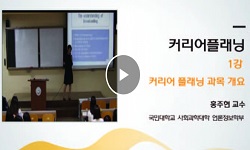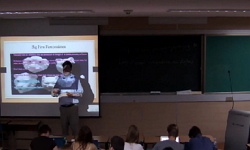Background: Fear and fatalism have been proposed as factors affecting breast cancer screening, but the evidence is not strong. This study aimed to determine relationships of fear and fatalism with breast cancer screening behavior among Tabriz women in...
http://chineseinput.net/에서 pinyin(병음)방식으로 중국어를 변환할 수 있습니다.
변환된 중국어를 복사하여 사용하시면 됩니다.
- 中文 을 입력하시려면 zhongwen을 입력하시고 space를누르시면됩니다.
- 北京 을 입력하시려면 beijing을 입력하시고 space를 누르시면 됩니다.

Relationships of Fear of Breast Cancer and Fatalism with Screening Behavior in Women Referred to Health Centers of Tabriz in Iran
한글로보기https://www.riss.kr/link?id=A103247627
- 저자
- 발행기관
- 학술지명
- 권호사항
-
발행연도
2016
-
작성언어
English
- 주제어
-
등재정보
SCOPUS
-
자료형태
학술저널
-
수록면
4427-4432(6쪽)
- 제공처
-
0
상세조회 -
0
다운로드
부가정보
다국어 초록 (Multilingual Abstract)
Background: Fear and fatalism have been proposed as factors affecting breast cancer screening, but the evidence is not strong. This study aimed to determine relationships of fear and fatalism with breast cancer screening behavior among Tabriz women in Iran. Materials and Methods: In a cross- sectional study, 370 women referred to 12 health centers in Tabriz were selected with two-stage cluster sampling and data regarding breast cancer screening, fatalism and fear of breast cancer were collected respectively with a checklist for screening performance, Champions Fear and Pow Fatalism Questionnaires. Data were analyzed by logistic regression with SPSS software version 16. Results: Only 43% and 23% of participants had undergone breast self- examination and clinical breast examination. Among women older than 40 years, 38.2% had mammography history and only 2.7% of them had done it annually. Although fatalism and fear had a stimulating effects on breast cancer screening performance th relationships were not significant (P>0.05). There was a negative significant correlation between fear and fatalism (r= -0.24, p=0.000). On logistic regression analysis, age (OR=1.037, p<0.01) and income status (OR= 0.411, p<0.05) significantly explained BSE and age (OR=1.051, p<0.01) and body mass index (OR= 0.879, p<0.01) explained CBE. Also BMI (OR= 0.074, p<0.05) and income status (OR=0.155, p<0.01) was significantly effective for mammography following. Conclusions: Breast cancer screening behavior is inappropriate and affected by family livelihood status and lifestyle leads to weight gain, so that for promoting of screening behaviors, economic support to families, lifestyle modification and public education are suggested.
동일학술지(권/호) 다른 논문
-
- Asian Pacific Journal of Cancer Prevention
- Xu, Chuan
- 2016
- SCOPUS
-
- Asian Pacific Journal of Cancer Prevention
- Lertvutivivat, Supapen
- 2016
- SCOPUS
-
- Asian Pacific Journal of Cancer Prevention
- Doosti, Masoud
- 2016
- SCOPUS
-
FLT3-ITD Mutations in Acute Myeloid Leukemia Patients in Northeast Thailand
- Asian Pacific Journal of Cancer Prevention
- Kumsaen, Piyawan
- 2016
- SCOPUS




 ScienceON
ScienceON






